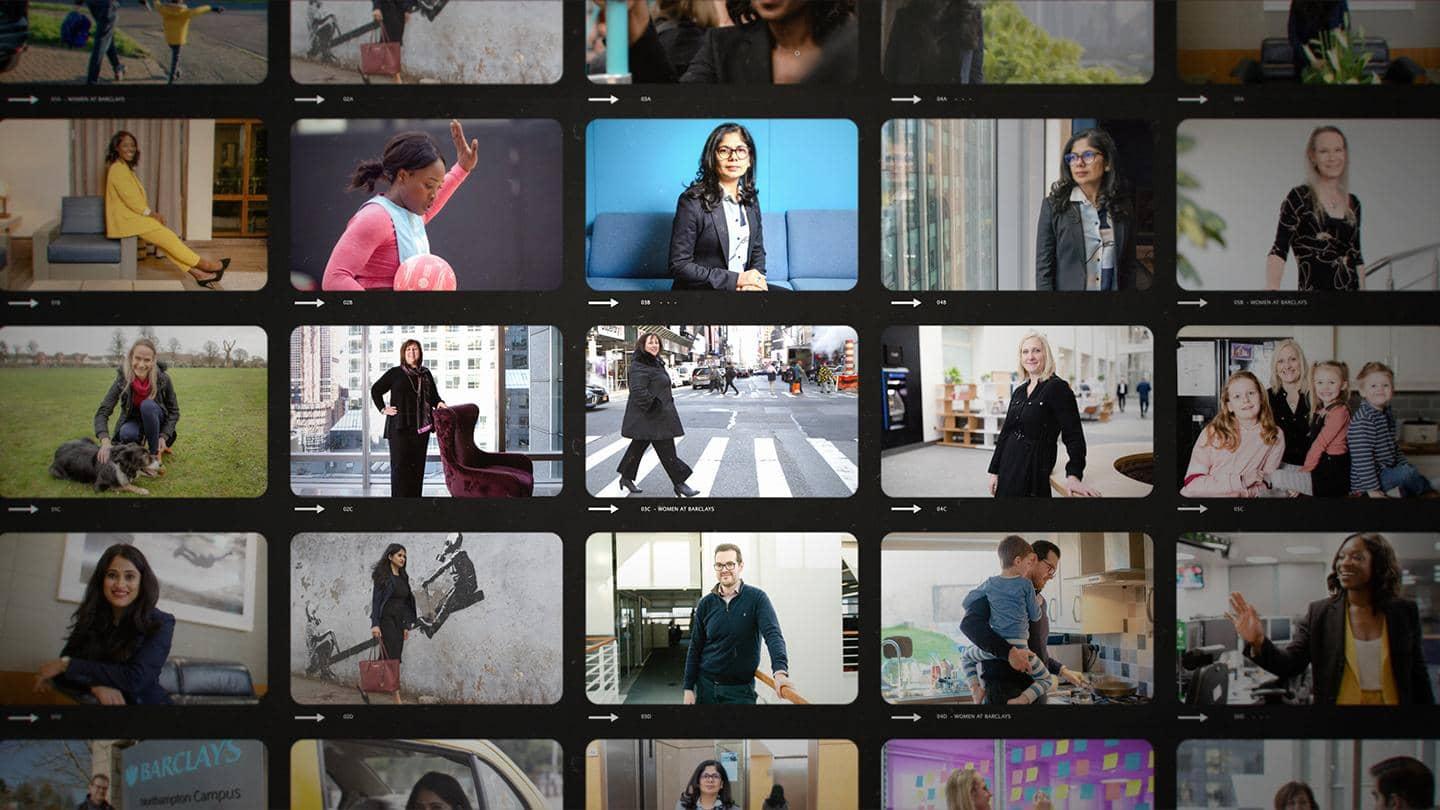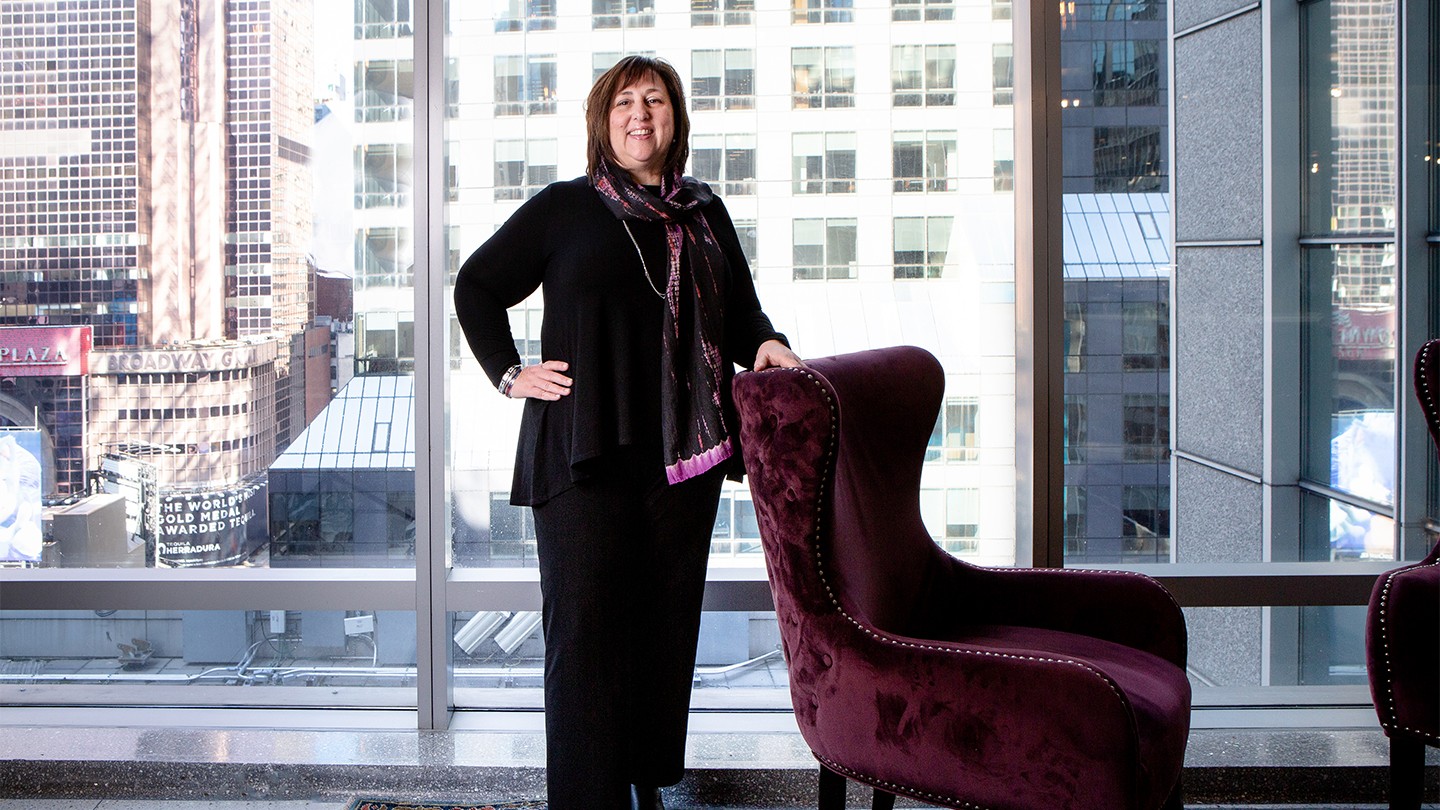
Culture
Everyone’s included: why International Women’s Day isn’t “just for women”
To mark International Women’s Day, we hear from seven colleagues who are driving change in gender equality at the bank on why the day is so important to them – and how Barclays has cultivated a culture where everyone is included.
This International Women’s Day (IWD), Barclays colleagues around the world will be celebrating the achievements of women and looking at what more needs to be done to make a difference.
From hiring the UK’s first ever female bank manager in the 1950s to being the first financial services company to sign up to the UN’s HeForShe campaign in 2015, Barclays has often been at the forefront in championing women’s careers.
Here, seven Barclays colleagues explain why IWD is a time to put equality centre stage.
Abisola Barber, Markets Business Manager at Barclays Investment Bank in London, says that the day “serves as a fantastic storyboard to educate people about the journey women have made over the centuries and to inspire the next generation to push for change”. While Abisola recognises that the financial services industry is often unfairly characterised as “pale, male and stale”, she says that the day has “helped hold organisations to account”, ensuring that they work towards equality.
“It’s not just a women-only day: people of every gender and sexual orientation can recognise and support,” she says.

International Women’s Day serves as a fantastic storyboard to educate people about the journey women have made over the centuries and to inspire the next generation to push for change
Markets Business Manager at Barclays Investment Bank
That’s something that Dan Reed, Head of Digital and Platform Delivery at Barclays in Northampton, can relate to. The father-of-two – who runs ‘The Career Dad Show’ podcast in which guests explore the highs and lows of being a working dad – says IWD “has given a lot of visibility to women’s issues and has started conversations”.
But, he adds, those conversations also need to happen all-year round – not just on the day itself.
We are striving for total equality
Kirsty Morris, Managing Director of Account Development at Barclaycard in Northampton, says that Barclays “has a really good, strong story to tell about how it has championed women’s careers”.
The bank has supported IWD for nearly two decades and set up a number of initiatives, including the Women’s Initiative Network (Win), which helps attract, retain and progress female talent and the Barclays Working Families Network, which helps working parents and carers find a better work-life balance.
IWD, she says, is a time to “go back and say, ‘Hang on a minute, there still isn’t total equality but we are striving for it’. It’s a point in the calendar for people to press that reset button and go again.”
Data architect Elizabeth Rimmington, who transitioned as a transgender woman while working for the bank, says: “I’ve seen both sides of the fence.”
Male allies are essential in promoting and developing female talent, she says, acknowledging the impact of the UN HeForShe movement, which “drives male allies to support women in the business and achieve their goals”.
Elizabeth, based at Barclaycard in Hampshire, adds that IWD matters because “it recognises the achievements of women and the struggles we’ve been through – and I think that’s really important.”
Vandana Siney, Chief Compliance Officer for Barclays UK, agrees that reflecting on the past is critical to setting future goals for women in the workplace.
“International Women’s Day is important because it’s a celebration and about learning from other inspirational women, now and in history. We need to know our past and how we got here.”
Building a culture where everyone’s included and accepted starts from the top, she says “with senior leaders setting the inclusivity agenda so their managers follow and it cascades throughout the organisation. It’s not just about doing the right thing, but explaining to people why it makes commercial sense.”
Looking to the future
Sonali Shelke, Vice President in Transaction Banking at Barclays in Mumbai, says that although IWD is an important reminder to address gender inequalities, “what is really helpful for our society is what we are doing on a day-to-day basis, in our regular environment and day-to-day jobs.”
She stresses that diversity and inclusion need to be given equal weight to continue progressing the gender agenda.
“When it comes to diversity and inclusion, I think that companies often do the first part right which is hiring. That’s the easy one – you can hire across gender and nationalities. It is the next part – the inclusion part – that is really about giving everyone an environment to grow.
“That’s what companies need to focus more on. At Barclays, we are working on inclusion with initiatives like dynamic working which has been super helpful to achieve some sense of work-life balance. These small things matter and help us build a more equal environment.”

In 2020 we are excited to develop an agenda that focuses on women and inclusive leadership with both clients and colleagues, but especially the latter
Managing Director of Corporate Banking Americas at Barclays
Karla Maloof, Managing Director of Corporate Banking Americas at Barclays and Co-Chair of Barclays Win for the Americas, says supporting women to reach their potential has always been a priority.
“In 2020 we are excited to develop an agenda that focuses on women and inclusive leadership with both clients and colleagues, but especially the latter.
“To be able to celebrate and connect with colleagues around the globe with a common goal of achieving a better gender balance is exciting and creates a lot of energy. We want everyone to engage and see what we can achieve when we come together.”